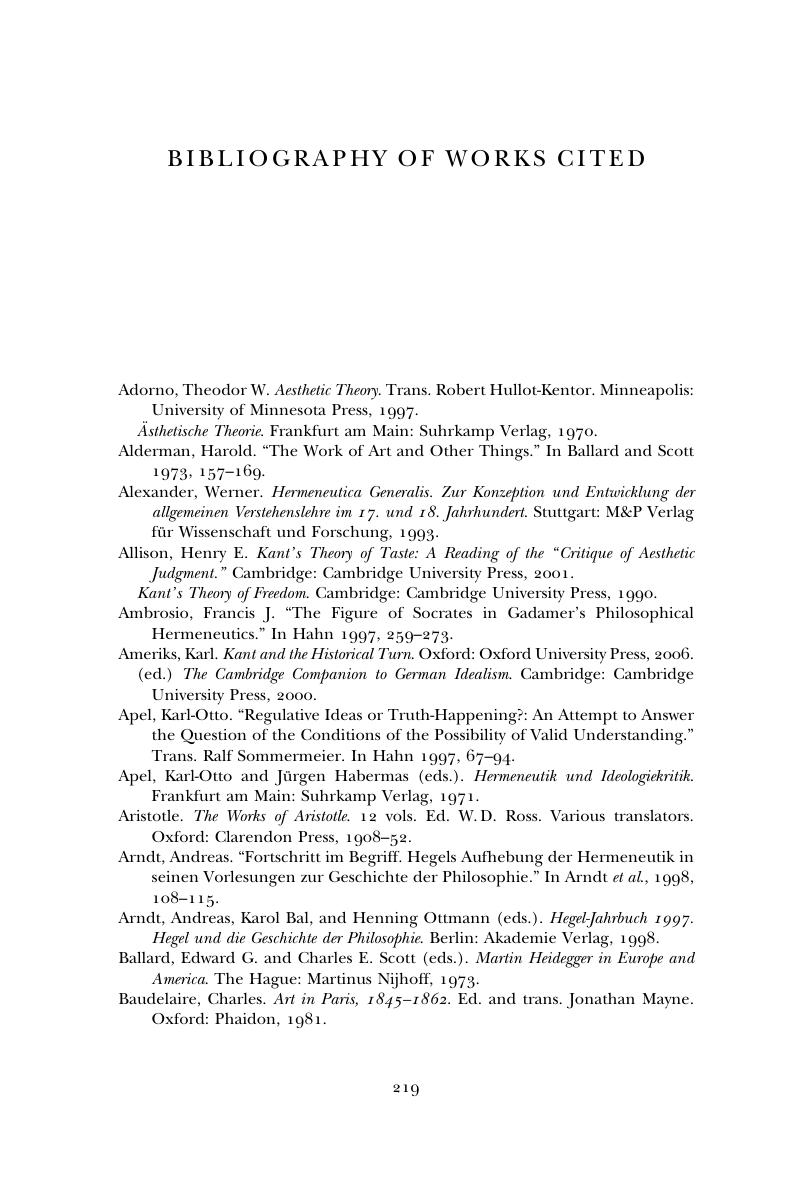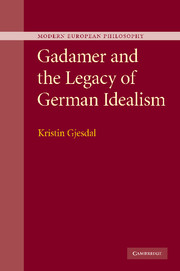Book contents
- Frontmatter
- Contents
- Preface
- Acknowledgements
- List of abbreviations
- Introduction
- 1 Art, dialogue, and historical knowledge: Appropriating Kant's Critique of Judgment
- 2 Beyond the third Critique: Epistemological skepticism and aesthetic consciousness
- 3 Overcoming the problems of modern philosophy: Art, truth, and the turn to ontology
- 4 History, reflection, and self-determination: Critiquing the Enlightenment and Hegel
- 5 Schleiermacher's critical theory of interpretation
- 6 Normativity, critique, and reflection: The hermeneutic legacy of German Idealism
- Bibliography of works cited
- Index
- References
Bibliography of works cited
Published online by Cambridge University Press: 06 August 2010
- Frontmatter
- Contents
- Preface
- Acknowledgements
- List of abbreviations
- Introduction
- 1 Art, dialogue, and historical knowledge: Appropriating Kant's Critique of Judgment
- 2 Beyond the third Critique: Epistemological skepticism and aesthetic consciousness
- 3 Overcoming the problems of modern philosophy: Art, truth, and the turn to ontology
- 4 History, reflection, and self-determination: Critiquing the Enlightenment and Hegel
- 5 Schleiermacher's critical theory of interpretation
- 6 Normativity, critique, and reflection: The hermeneutic legacy of German Idealism
- Bibliography of works cited
- Index
- References
Summary

- Type
- Chapter
- Information
- Gadamer and the Legacy of German Idealism , pp. 219 - 230Publisher: Cambridge University PressPrint publication year: 2009



